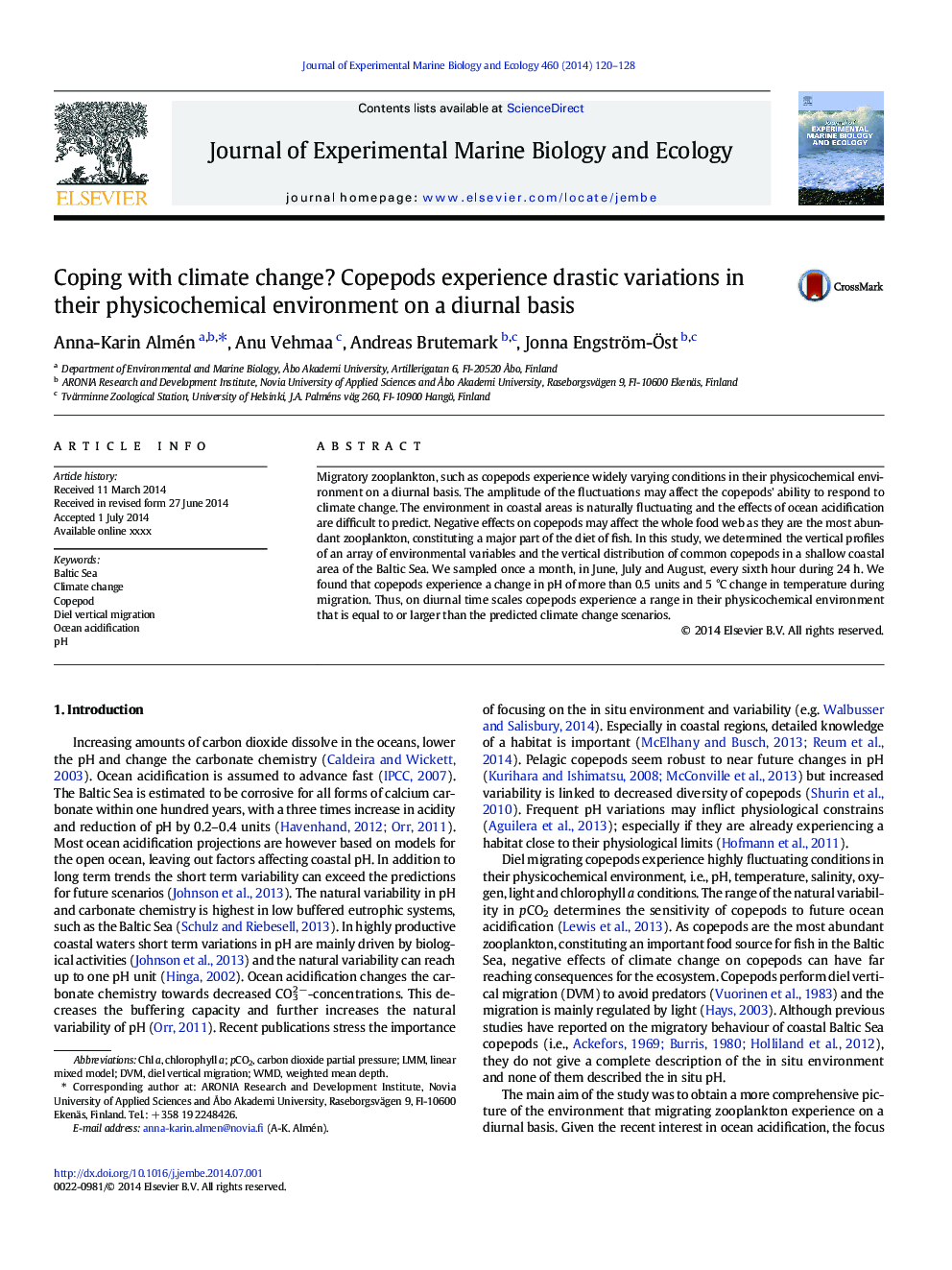| Article ID | Journal | Published Year | Pages | File Type |
|---|---|---|---|---|
| 6304070 | Journal of Experimental Marine Biology and Ecology | 2014 | 9 Pages |
Abstract
Migratory zooplankton, such as copepods experience widely varying conditions in their physicochemical environment on a diurnal basis. The amplitude of the fluctuations may affect the copepods' ability to respond to climate change. The environment in coastal areas is naturally fluctuating and the effects of ocean acidification are difficult to predict. Negative effects on copepods may affect the whole food web as they are the most abundant zooplankton, constituting a major part of the diet of fish. In this study, we determined the vertical profiles of an array of environmental variables and the vertical distribution of common copepods in a shallow coastal area of the Baltic Sea. We sampled once a month, in June, July and August, every sixth hour during 24 h. We found that copepods experience a change in pH of more than 0.5 units and 5 °C change in temperature during migration. Thus, on diurnal time scales copepods experience a range in their physicochemical environment that is equal to or larger than the predicted climate change scenarios.
Keywords
Related Topics
Life Sciences
Agricultural and Biological Sciences
Aquatic Science
Authors
Anna-Karin Almén, Anu Vehmaa, Andreas Brutemark, Jonna Engström-Ãst,
